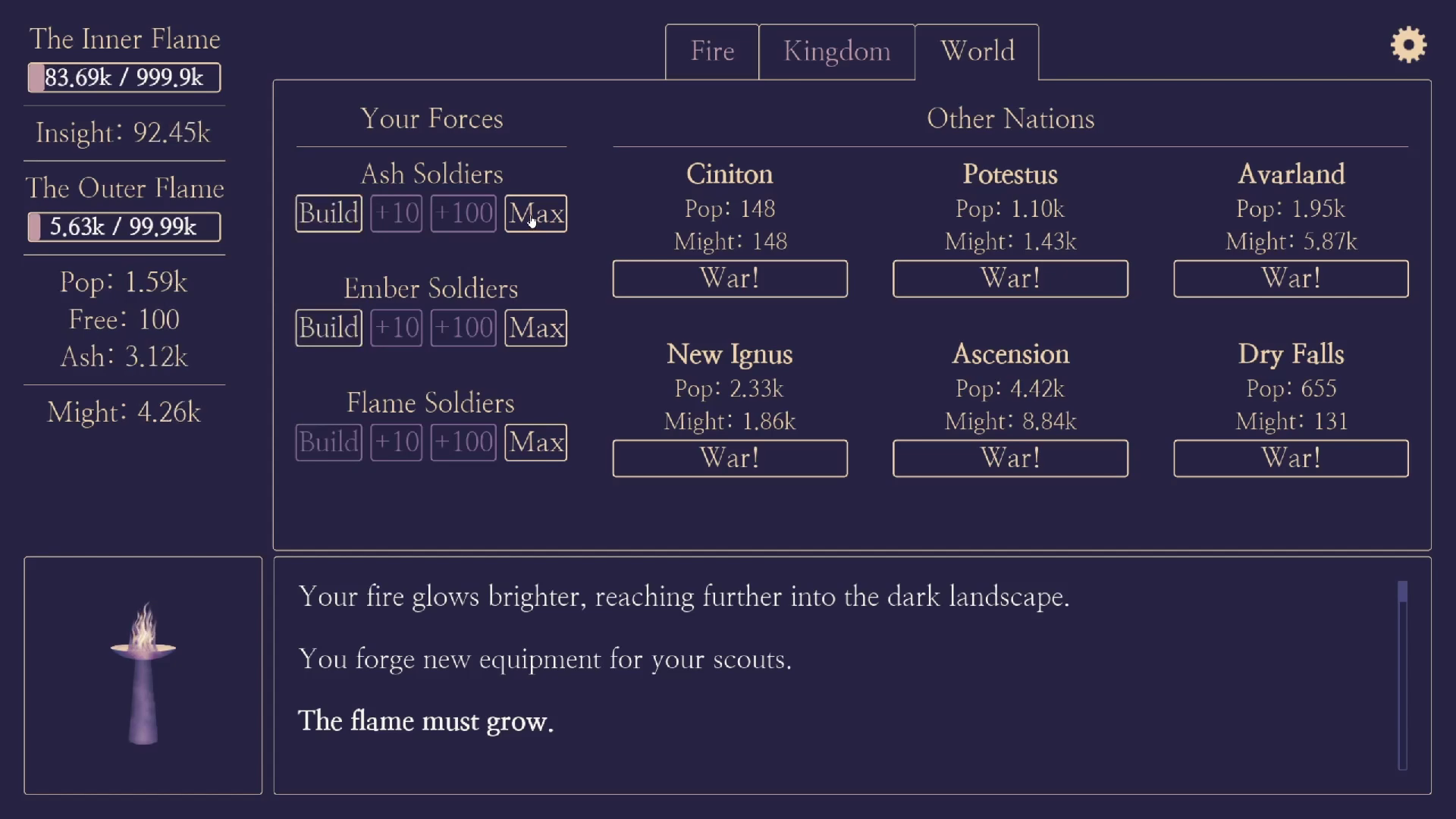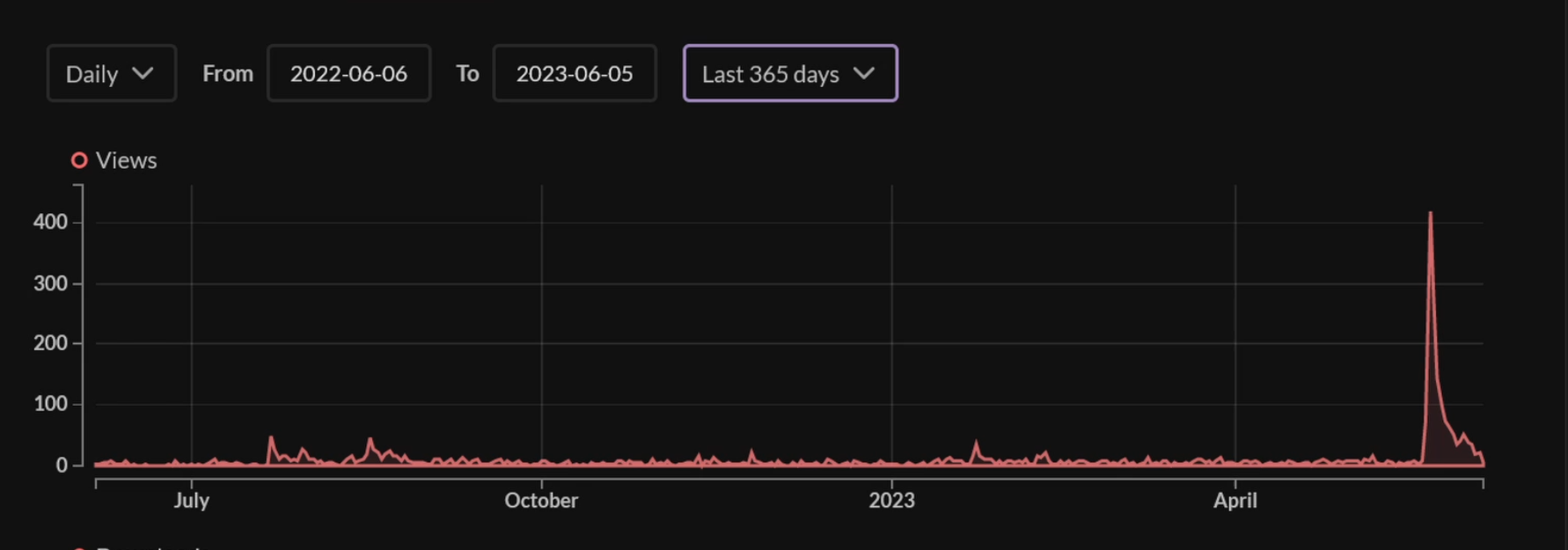Making an atmospheric incremental game in Godot
I like to use game jams as a time to experiment, so for the recent Godot Wild Jam I decided to try my hand at an incremental game, but I didn’t want to just make a game about “Click button and watch number go up”, so Flame Forged places an emphasis on lore and atmosphere to offer a bit more of a complete experience. You start out in a dark, ash-covered wasteland, receiving terse narration as you wander around and do some slightly non-traditional clicking, but by the end of the game, your economy is roaring, you’re waging war on other nations, and meditating on the existence of the world. As incremental games aren’t exactly a technically complicated genre on their own, I’ll instead focus on some other interesting aspects from my time developing the game.

I used Godot 3 for this game as Godot 4 still seems to have web export quirks, but for a simple game like this I really didn’t need the features of Godot 4 anyways. I did decide to experiment with HTML builds a bit and customize the load screen with a custom palette, which is as simple as pulling the right template HTML file for your version of Godot, configuring exports to use it, and then making some CSS adjustments.
For creating the game itself, I created one scene in Godot for the entire game so that the log would be persistent, swapping out the controls depending on what phase of the game you’re in. Most of the UI is quite dumb, just presenting some information and then relying on a few Autoloads that handle the actual data needed to run the game. There’s one for narration, which tracks player progress and prints lore messages when certain conditions are met, one for general progression to swap out the game controls for each phase of the game, one for managing upgrades and their associated data, and one for the player, which is really just a bank for different forms of currencies. I probably wouldn’t normally go so heavy on Autoloads, but hey, it’s a game jam.
The one non-incremental part of the game is war, which is really just a simple dice roll game, but it adds a little bit of simple variety. I wanted to add some more side games like this to spice things up, such as a very light city-building aspect for bonuses to your economy or maybe a little exploration roguelike, both of which would be automated and quite simple so as not to distract from the main game, but they got cut for time. This was all part of my attempt to avoid making an idler game, as I wanted the player to be actively engaged the whole time.
What little art exists beyond UI was done by my partner as we continue to experiment with doing games together, and while I did still compose the song for this game using Reaper plus a few VSTs, several of which were from DSK, I did use a sound pack from Game Master Audio that I had recently picked up for the sound effects since I didn’t feel like I enough time to figure out how to create everything I wanted. While I do like making my own sound effects, it’s hard to argue that I’d make anything as good in this case.
But it wasn’t all smooth sailing. Right before release, I caught a bug where the game could take you to the win screen early, but quickly fixing that with almost no time left led to me introducing the opposite bug where you could never win the game, so I had to do a quick bugfix after the jam had already ended so you could at least finish the game.
I also got a lot of feedback about how there’s too much clicking in the game, and some people weren’t sure if that was intentional because of the genre. It was not. So after the rating period ended, I went and made a few quality of life improvements so you could better manage the late game content without clicking so much. I still think there’s room for improvement in the UI, but it’s a lot better than it was.
On release, one of the most surprising things to me was just how much organic traffic Itch sent the game compared to every other game jam I’ve done. Looking at the game’s analytics, it seems that incremental and related games are one of those genres where player’s are actively seeking out new and interesting games. Food for thought.

And that’s a quick look at the game’s development. It got solid reviews (though I’m not sure why it got rated so highly on accessibility?) and I’m happy with how it came out. Check it out on Itch if you’re interested.